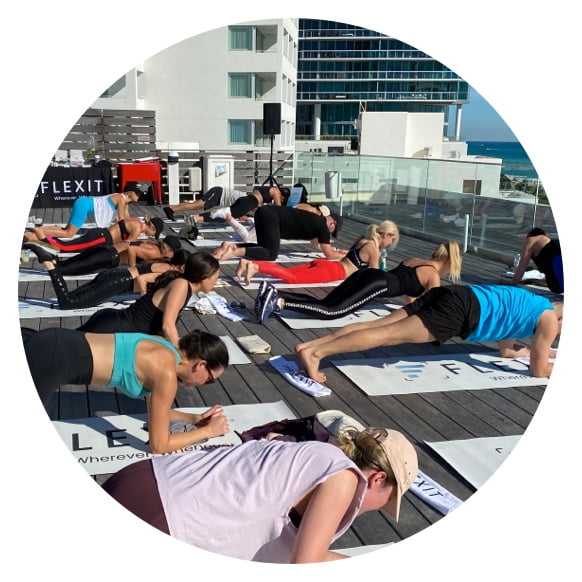
Despite golf being less physically straining than most sports, it still puts an enormous amount of stress on our bodies. If you don’t manage your body properly to play golf, then it can cause an injury and one that is recurring if you don’t treat it the right way. Some of the most common golf injuries include “golfer’s elbow,” low back pain, rotator cuff injuries, and IT band syndrome.
Golfer’s elbow: Golfer’s elbow is usually an overuse injury, however, it can occur on one swing especially if you haven’t gone through a proper warmup. One way to prevent or lower the chances of this injury occurring is by managing the number of practice swings you take where you are taking a divot out of the grass. If you do end up developing a golfer’s elbow, you should focus on gripping exercises and movements that train the forearm muscles such as forearm curls or carrying heavy objects.
Rotator cuff injury: The cuff muscles can be strained or impinged especially after quick, jerky movements. If you sustain a rotator cuff injury you should gradually expose your body to more mobility and load, making progressions as you feel comfortable and progress in your rehab. If you do start to experience pain during rehab, it could be essential to make some adjustments such as discontinuing swinging the club for a little. Additionally, doing pain-free movements like landmine presses or downward dog can help you a lot to strengthen and increase the range of motion in your shoulders.
IT band syndrome: IT band syndrome is a painful condition in which the connective tissue begins to rub against the thigh bone. This can cause issues for the knee as well as the hip and down the side of the leg. The most common cause of this is underutilizing the glute muscles so it is important to warm up these muscles before play. Another thing to consider to prevent injury is to adjust your front foot position with your swing coach to ensure that you are not putting too much stress on the hip/knee area.
Adjustments: Mental adjustments can also be key in terms of avoiding injuries. There is a positive value in giving your body the chance to rest and recover. This does not mean shutting down swinging the club entirely but rather reducing the intensity of workouts or practices leading up to a big match or tournament.








